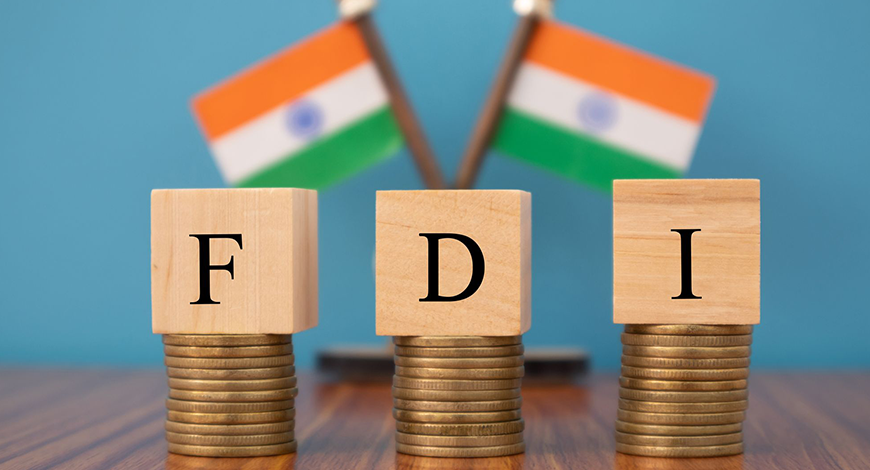Headlines of The Day
India’s 100% FDI policy encourages investors; attracts MedTech players

Amidst the escalating global disease burden, healthcare providers worldwide are intensifying efforts to expedite delivery systems and implement more precise treatment therapies, aiming for swifter patient recovery outcomes. Correspondingly, healthcare stakeholders in India are actively enhancing procedures for high-risk treatments, striving for greater precision and efficacy.
Concurrently, the Indian government’s successful efforts in attracting major global medical device players from countries like Japan, Germany, and the USA have facilitated the introduction of advanced devices and therapies, revolutionizing treatment methodologies and improving treatment outcomes for high-risk diseases. Medical Technology Association of India (MTaI) has earlier recommended Japan as the preferred choice for medtech imports instead of China.Notably, India’s policy allowing 100% Foreign Direct Investment (FDI) under automatic routes for both Greenfield and Brownfield setups has encouraged global investors to participate in the healthcare sector.
The burgeoning adoption of Japanese medical technology in India marks a significant shift in the nation’s healthcare landscape, promising groundbreaking innovations and collaborations that stand to revolutionize healthcare delivery nationwide. This trend is propelled by Japan’s renowned expertise in precision engineering and advanced medical devices, with Japanese companies leading the development of cutting-edge technologies in areas like diagnostic imaging, surgical robotics, and regenerative medicine. Collaborations between Japanese and Indian firms have played a pivotal role. These collaborations facilitate technology and knowledge transfer, empowering Indian healthcare providers to leverage Japanese expertise while tailoring solutions to local needs. The contribution of Japan also extends notably to advancing cardiovascular treatment methodologies in India.
One of the noteworthy instances of investment involves Terumo India’s introduction ofUltimasterNagomi, a Drug-Eluting Stent (DES) for treating coronary artery disease, reflecting theircommitment to investing in next-generation stents to enhance the safety and efficacy of coronary artery treatments in India.Additionally, Terumo India recently unveiled innovative therapies like B-TACE for managing liver cancer in India. Through Occlusafe, Terumo’s B-TACE device offers patients a more precise and targeted delivery of chemotherapy drugs to the tumor, while minimizing damage to surrounding healthy tissues. Numerous other investments are made in India, such as Omron Healthcare’s manufacturing unit launch in Tamil Nadu and the collaboration between Japan Lifeline and Meril Sciences to promote medical devices or therapies.
Statistics suggest that India has approximately 2.8 million hospital beds, including both private and public. Therefore, there are 1.7 beds per 1,000 people in comparison with developed nations that have around 2.5 to 3. Despite India’s cadre of proficient doctors and expanding healthcare infrastructure, comprehensive coverage remains elusive, hindering healthcare accessibility for many. Addressing this challenge is crucial for optimizing the country’s healthcare resources and ensuring equitable access to healthcare opportunities. Further, the country needs to reduce the cost of healthcare and invest in technology to create better patient experience and clinical outcomes.
As India grapples with healthcare challenges amid rapid urbanization, demographic shifts, and the burden of non-communicable diseases, the influx of Japanese medical technology offers hope. By embracing innovation and forging strategic partnerships, India stands to leverage Japanese expertise for a healthier and more prosperous future. The surge of Japanese medical technology in India signifies not only technological advancement but also the power of collaboration and shared vision in driving positive change in healthcare delivery, promising transformative impacts across the Indian subcontinent. The Daily Guardian












